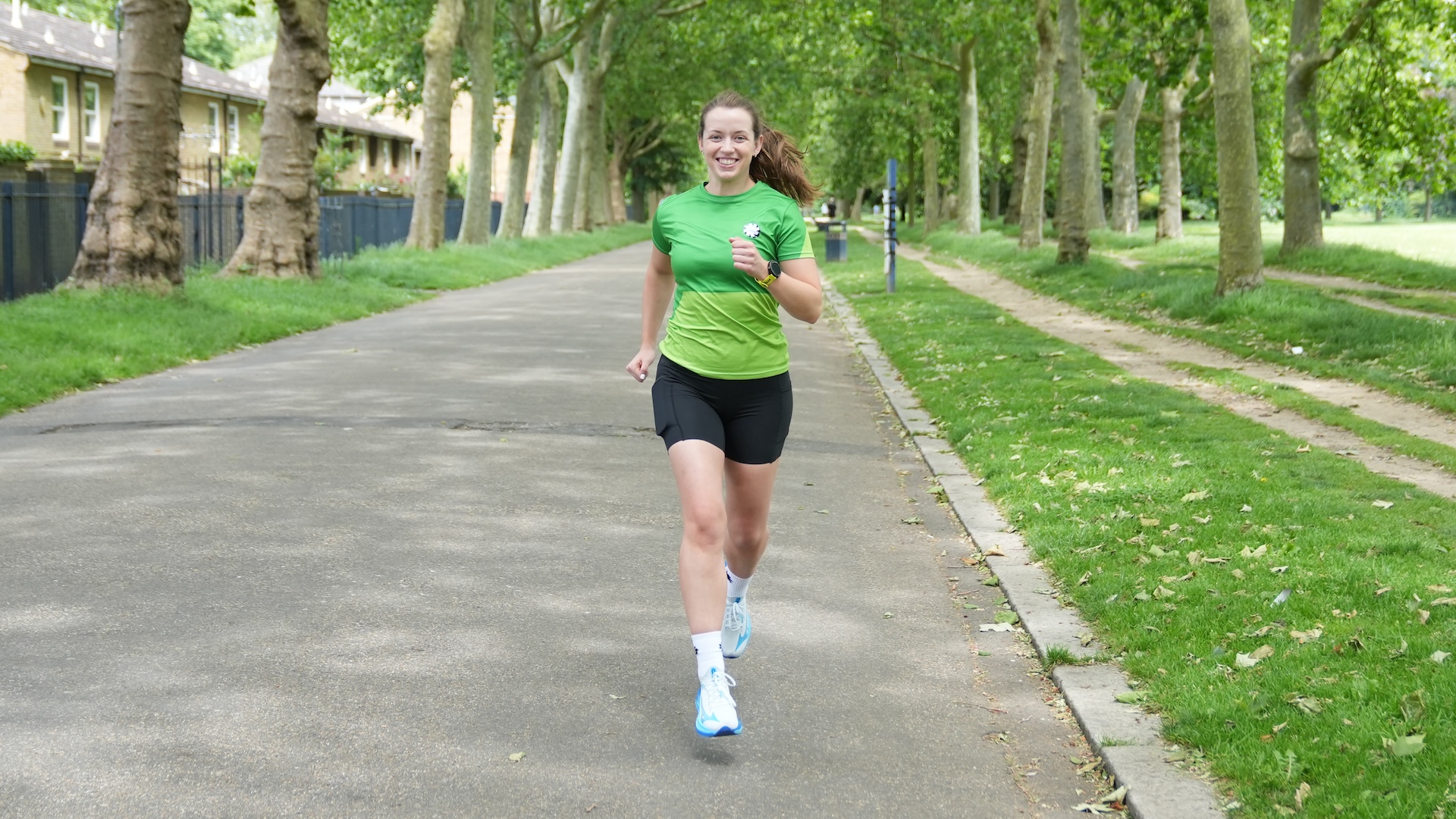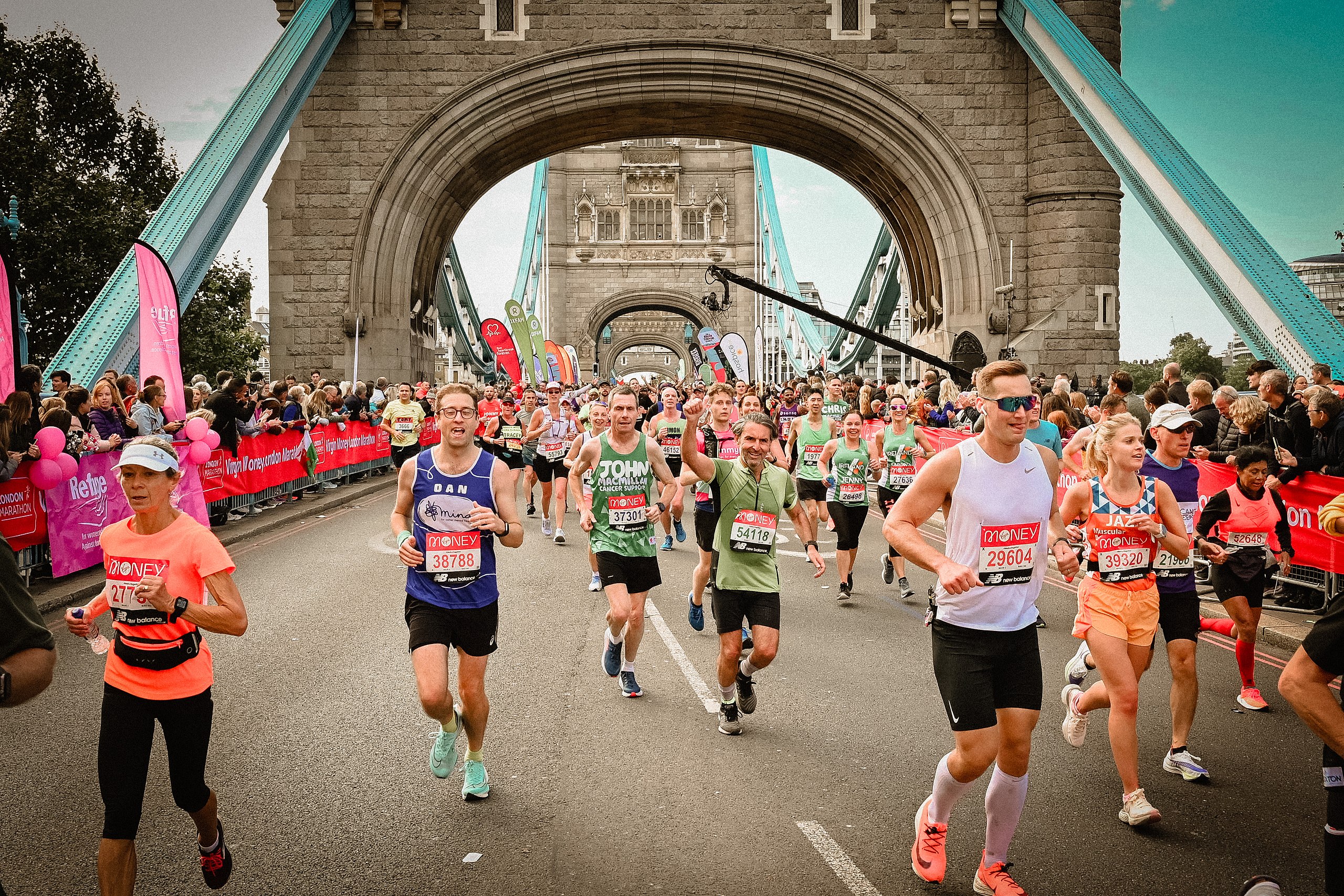Jeffing & How To Run-Walk

Taking a run-walk approach can be a great way to start running, a great way to return to running after a break, or just a great way to help your enjoyment of running.
Here’s what you need to know about how to run-walk, sometimes also known as ‘Jeffing’.
WHAT DOES RUN-WALK MEAN?
Run-walk means that your activity alternates between running and walking.
Couch to 5k is a popular form of run-walk which progresses from one-minute runs to a continuous 30-minute run over two months.
Other forms of run-walk advocate for regular walks of 30-60 seconds throughout a full run (i.e. run one minute in every mile). This method is sometimes known as ‘Jeffing’.
WHAT IS JEFFING?
Jeffing is a run-walk approach which recommends incorporating short walks from the beginning of the run, and continuing those walks through the full duration of your run.
Jeffing is named after marathoner Jeff Galloway, the American Olympian who popularised the run-walk-run approach after getting into coaching and seeing how walking was a way to reduce fatigue, prevent injuries, and help runners to go further and feel stronger.
WHAT ARE THE BENEFITS OF RUN-WALK?
- Run-walk is a great way to start running and to gradually increase the amount of continuous running that you can do
- Run-walk is easier on your body than running so it can lessen injury risk, plus it reduces muscle fatigue which may help you to carry on for longer
- Run-walk feels a little easier on the mind as well as your body. Knowing you always have a short walk break coming allows you to think about a run in smaller, more manageable chunks
- Run-walk is something that can work for all runners
- Run-walk can help to keep your heart rate consistently in lower zones during a longer run without the natural ‘cardiac drift’ that happens as your heart rate gradually increases
- Research suggests that run-walking in a longer race won’t necessarily make you slower than starting out with an approach to just run the whole race
HOW TO RUN-WALK IN TRAINING?
If you’re new to running, or coming back after some time off, then the run-walk approach can help you to comfortably build up the amount you run. You will also have the extra benefit of more ‘time on feet’ because of the walking in between the runs, which is great to help increase your general fitness.
A typical run-walk programme builds up over 8-10 weeks until you are at a continuous run of 30 minutes. The format is simple and can be adapted to suit you, with 30 minutes being a good target to aim for for most beginning or returning runners. Runners can then use the same approach to increase their distance further.
However, this may not be the right approach for everyone, and you may wish to find the right mix of run-walk-run which you continue without aiming for continuous running.
If you plan to continue with the run-walk method, then find the intervals which work best for you.
A RUN-WALK TRAINING PLAN
Below is a suggested run-walk plan to help you get started as a runner or run-walker. Aim to repeat each of these three times in one week with at least one rest day between each. The walk should always be a brisk pace, unless you feel the need to slow down, and the run should always be a controlled conversational effort – you should not be trying to run as fast as possible during the run.
Do a short warm up and dynamic movements before starting your walk.
(For clarity: When we write “1 minute run, 4 min walk”, that means after your warm up you will run 1 minute then walk for 4 minutes and repeat the run-walk part five times in total, but you don’t need to repeat the warm up).
- Week 1: 10 min walk warm up / 30 second run, 4 min walk x 5
- Week 2: 10 min walk warm up / 1 minute run, 4 min walk x 5
- Week 3: 10 min walk warm up / 2 minute run, 3 min walk x 5
- Week 4: 10 min walk warm up / 3 minute run, 2 min walk x 5
- Week 5: 10 min walk warm up / 5 minute run, 2 min walk x 5
- Week 6: 10 min walk warm up / 7 minute run, 2 min walk x 3
- Week 7: 7 min walk warm up / 10 minute run, 2 min walk x 2
- Week 8: 7 min walk warm up / 15 minute run, 2 min walk x 2
- Week 9: 5 min walk warm up / 10 minute run, 1 min walk x 3
- Week 10: 5 min walk warm up / 30 minute run
MORE ON JEFFING
Jeffing suggests using 30-second walk intervals, but walks of a minute or more are also fine.
That short walk time can delay fatigue and be enough to allow you to let your muscles feel some relief, especially during a longer run walk.
The length of the run portions of a Jeffing run-walk-run approach will be based on your confidence, training and what Jeff calls a Magic Mile time.
What’s the Magic Mile in Jeffing? It’s a one mile time trial to give you a suggested mix of running and walking in a race. Find out more here and use it to find a suggested pace.
HOW TO RUN-WALK YOUR WAY TO A MARATHON
You can run-walk or Jeff your way to marathon success by incorporating run-walking throughout your training and into race day.
The best approach is to use walking intervals from early into the race and don’t rely on them only when you get tired. One study found that run-walking led to similar finish times in first-time marathoners compared to those who set out intending to run the whole way.
You may want to try to run the first 3-5k/2-3 miles as this part of a race is often busier and hopefully you feel good from the start line. Otherwise find the right balance of run-walking for you and try to stick to a consistent pattern throughout your race.
You could try walking the first one-minute of each mile, or one-minute in every 10 minutes, for example, or go for shorter intervals like 30 seconds in each kilometre or after five minutes.
If you plan to take this approach then just be careful when slowing down to a walk, especially if it’s in a busier race and you have lots of people around you.
Some races also now have run-walk pace makers. Just check with the race organiser to see if that’s an option in your race.
***
Have you had success using the run-walk method?



























Running News
Ingebrigtsen Stars at World Athletics Indoor Championships 2025 – Plus All The Winners!
Sam Ruthe Is First 15-Year-Old To Run A Four-Minute Mile!
Eliud Kipchoge Will Run The 2025 Sydney Marathon!